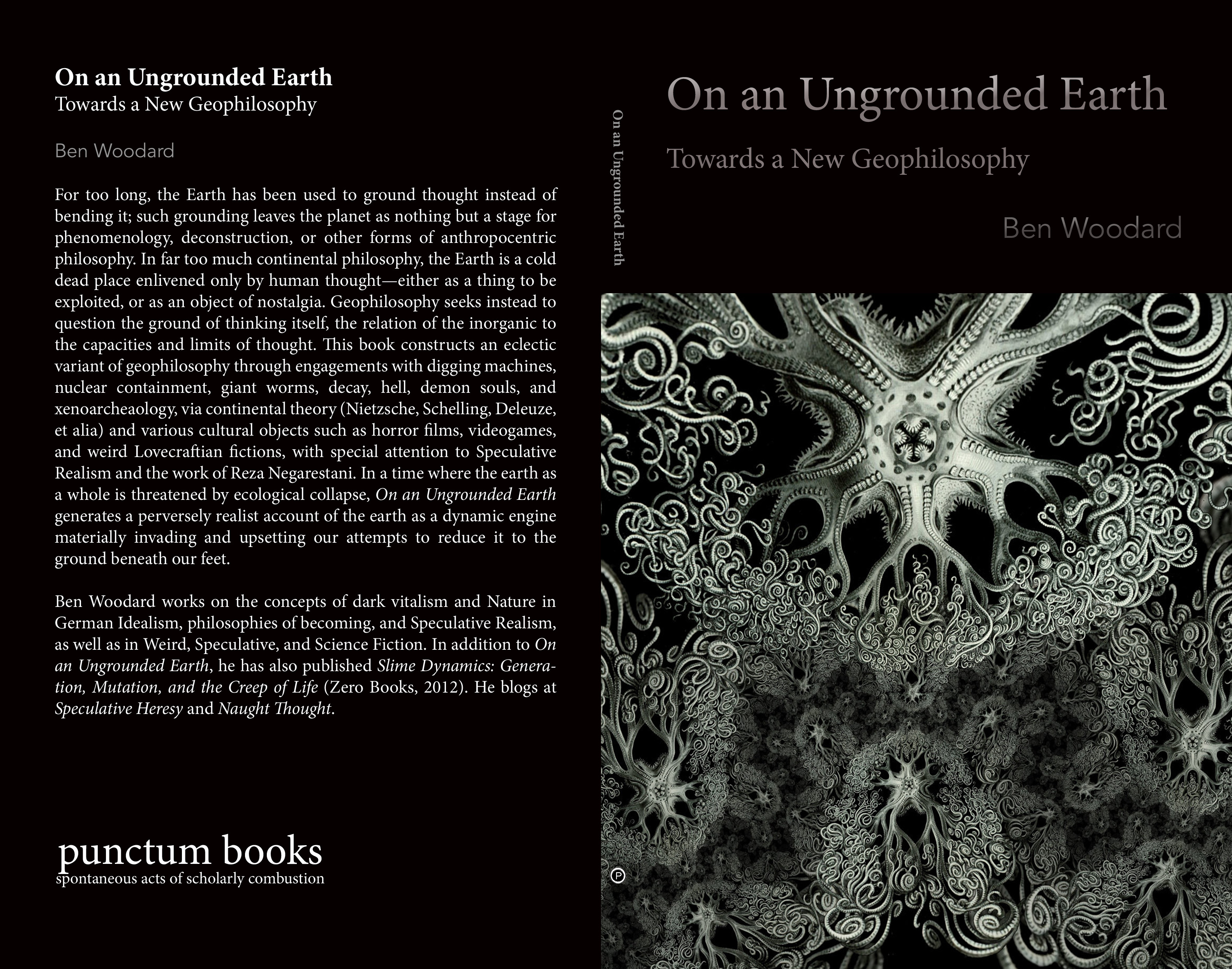
ENG496
Scholarly and Critical Editing
SPRING 2013
Open-Access Para-Academic Publishing Lab
Tuesdays 6:00-8:00 pm
Peck Hall 3310
Prof. Eileen A. Joy
Office Hours: MON/TUE 4:00-6:00 pm
Peck Hall #2225

"The term ‘para-academic’ captures the multivalent sense of something that fulfills and/or frustrates the academic from a position of intimate exteriority. Para-academia is that which is beside academia, a place whose logic encompasses many reasons and no reason at all (para-, “alongside, beyond, altered, contrary,” from Greek para-, “beside, near, from, against, contrary to,” cognate with Sanskrit para “beyond”). The para is the domain of: shadow, paradigm, daemon, parasite, supplement, amateur, elite. The para-academic embodies an unofficial excess or extension of the academic that helps, threatens, supports, mocks (par-ody), perfects and/or calls it into question simply by existing next to it." ~Nicola Masciandaro
"Henceforth I whimper no more, postpone no more, need nothing, / Done with indoor complaints, libraries, querulous criticisms, / Strong and content, I travel the open road." ~Walt Whitman, "Song of the Open Road"
"If [highway and digital] interchanges are now the basic units of space through which we henceforth merely pass, how can one dwell there? Answer: we no longer dwell. Is it possible to conceive of, to draw a garden of wandering?" ~Michel Serres, Atlas
COURSE DESCRIPTION
In this course, you will be involved in the copy-editing, proofreading, formatting, and design of books and jounal issues for punctum books: spontaneous acts of scholarly combustion, a new open-access & non-profit publisher based in Brooklyn, New York that is dedicated to a radically open public intellectual commons, where the most broadly-conceptualized modes of creativity and styles of writing, and the greatest flow(s) of and access to so-called "academic" work within and beyond the University proper, can be ensured, cultivated and disseminated. Members of the class will serve as Associate Editors of punctum books, assisting in all phases of a book's or journal issue's production, from the time a manuscript has been approved by punctum's Advisory Board and the author or editor has submitted a "final draft," to the actual publishing and promotion of these publications. The course will also provide an overview of the state of publishing -- both trade publishing as well as university publishing -- in the United States and abroad, with a special emphasis on radical avant-garde presses and publications.
Think of this course (or "lab") as having four aspects: (1) practical: we will be making actual things in here that go out into the world and alter that world in some way; (2) theoretical: we will be having hopefully lively discussions about many of the initiatives, projects, and debates within the Digital Humanities [to whit on this subject, see Debates in the Digital Humanities]; (3) trade-oriented: we will acquaint ourselves with the business side of the publishing world (both trade and academic publishing) and talk about both the depressing "books are dead!" scenario as well as some of the creative ways in which some people (on both the trade and academic side of the equation) are reinventing the business-as-usual of the book trade in exciting new ways; and (4) philosophical: we will collectively muse on the life, career, and entrepreneurial possibilities for humanists in an increasingly mobile, diasporic, and networked global polis in which the humanist is finding herself the citizen of a growing global precariat.
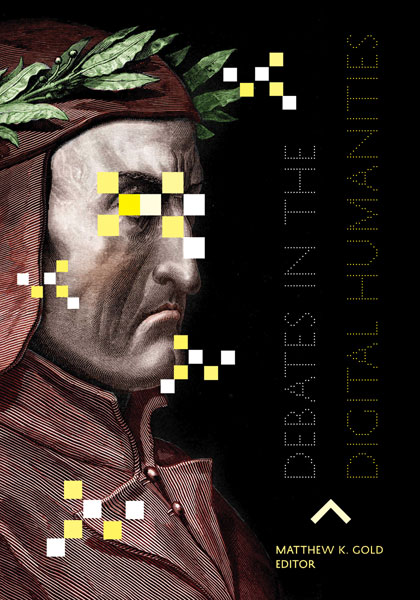
TEXT(s)
Matthew K. Gold, ed. Debates in the Digital Humanities. Minneapolis: University of Minnesota Press, 2012. [Go HERE for digital, open-access version.]
*I also want to encourage everyone to start haunting bookstores, especially Left Bank Books in downtown Saint Louis, and start REALLY looking at books and issues of journals, not for their content, per se [where you pick up a book and look at the back cover and some of the inside, and ask yourself, "do I want to read this book?"], but for the ways in which these texts have been crafted as design-objects: look at the font styles, the size(s) and varieties of fonts [what is serif? what is sans serif? and how does that matter to your EYES?], the ways in which blocks of text are arranged on pages, chapter headings, page numbering, copyright and title pages, spine design, trim size, paper weight and color, covers. Start thinking, a lot, about the aesthetics of the text-as-thing. What does a book look like when it's open, when it's closed, on a shelf lined up alongside other books, on a coffee table, in someone's hands who is reading it on a bus or in an elevator, etc.? Spend some, time, too perusing the websites of presses that make really beautiful and quirkily designed books and journals, such as McSweeny's, Chronicle Books, Fence Books, Phaidon, Sequence Press, GSAAP Books, Zone Books, Feral House, Other Books, and the like.
**I also [also] want you to spend some time familiarizing yourself with what are referred to as open-access academic humanities presses, of which there are not many, but start with Open Humanities Press, re.press, and of course punctum books. And relative to this, start browsing through the website of what, for lack of a better term, we will call radical, avant-garde, independent-alternative culture-theory-politics-art presses, such as Autonomedia, Semiotext(e), AK Press, Univocal, Verso, OR Books, Zero Books, and The New Press [punctum books, by the way, is attempting to bi-locate between the university press model and the more radicalized independent-alternative model].
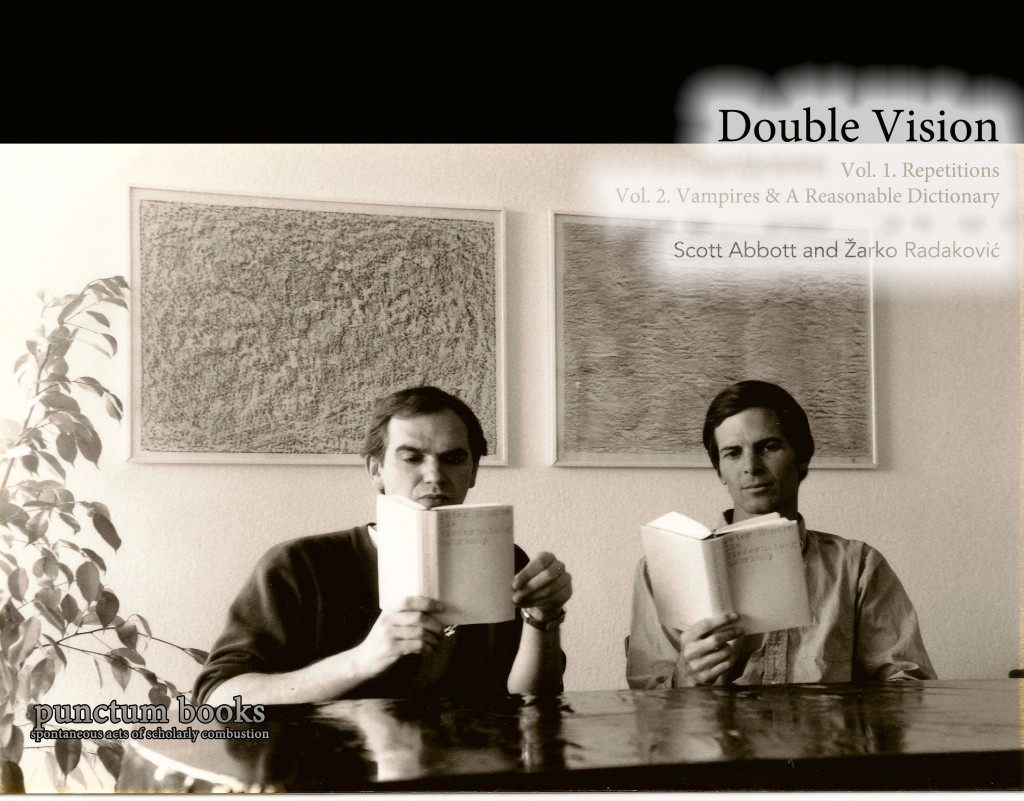
REQUIREMENTS
As this is a lab-course in which we will be producting actual books and journal issues together [as open-access digital texts and as print editions], computer literacy and access to the internet are imperative, and everyone needs to be proficient in Microsoft Word and also have that loaded on their home or portable computer [students will have access to Adobe CS -- Creative Suite -- software in the lab classroom]. There will be an emphasis on teamwork in this classroom [2 editors on a project is a necessity, 3 is ideal, and 4 is too many: see how this works?]. As there will be an emphasis on teamwork, this course requires your diligence, flexibility, dependability, and equanimity. Students will also need a Dropbox account: go HERE to sign up for one of those.
In the world of editing and publishing, attention to detail is a must and you cannot afford to NOT be unstinting in your attention to small details, whether to spelling, sentence construction, citation guidelines, how a type-font looks on a page, whether or not pages are numbered correctly, how lines of text are justified, etc. If there is any slacking off in this area, your product essentially doesn't go anywhere. Unlike other classes where you might say, "well, I put in a B-effort on that Shakespeare paper and I received a B, so I'm good with that," in this course, it's all A-level work or its FAIL-level work. Everything we make in here has to be perfect and you need to be the obsessive-neurotic "type A" kind of person who can't sleep at night unless everything is perfect. But that doesn't mean you don't get to make lots of mistakes: you DO. Because a publishing "house," which this course effectively is for a span of 15 weeks, is also a "lab" where we get creative, and that requires playfulness and a will to experiment, which is also a willingness to fail and fall on our faces. We will experiment with all sorts of ways of making texts, and along the way, we'll "trash" a lot of the results of those experiments, and happily. This is also a "learn as you go" course: in order to learn to be an editor, as well as a designer, you have to see how others do things, practice your own hand at that, and hopefully proceed with confidence on your own, but always with the help of your peer editors and the expertise of the instructor.
In addition to the products we make in the lab, each student will also be responsible for making a 15-minute presentation on 2 chapters in the Debates in the Digital Humanities book [see above under "Text"]. Some class time will be devoted each week to these presentations as well as to other discussions that touch upon the theoretical, trade-oriented, and philosophical aspects of new initiatives within the Digital Humanities, and students are expected to be thoughtful and active participants in these discussions. This online syllabus will include a hyper-linked Working Bibliography [see below] that will comprise an archive of work that has been published [whether in scholarly journals and book, the blogosphere, in various news outlets] that touches upon current debates in the digital humanities and in the world of trade and academic publishing. A good place to start listening in on how changes in technology are affecting the current state(s) and future of the humanities, is the HASTAC website.
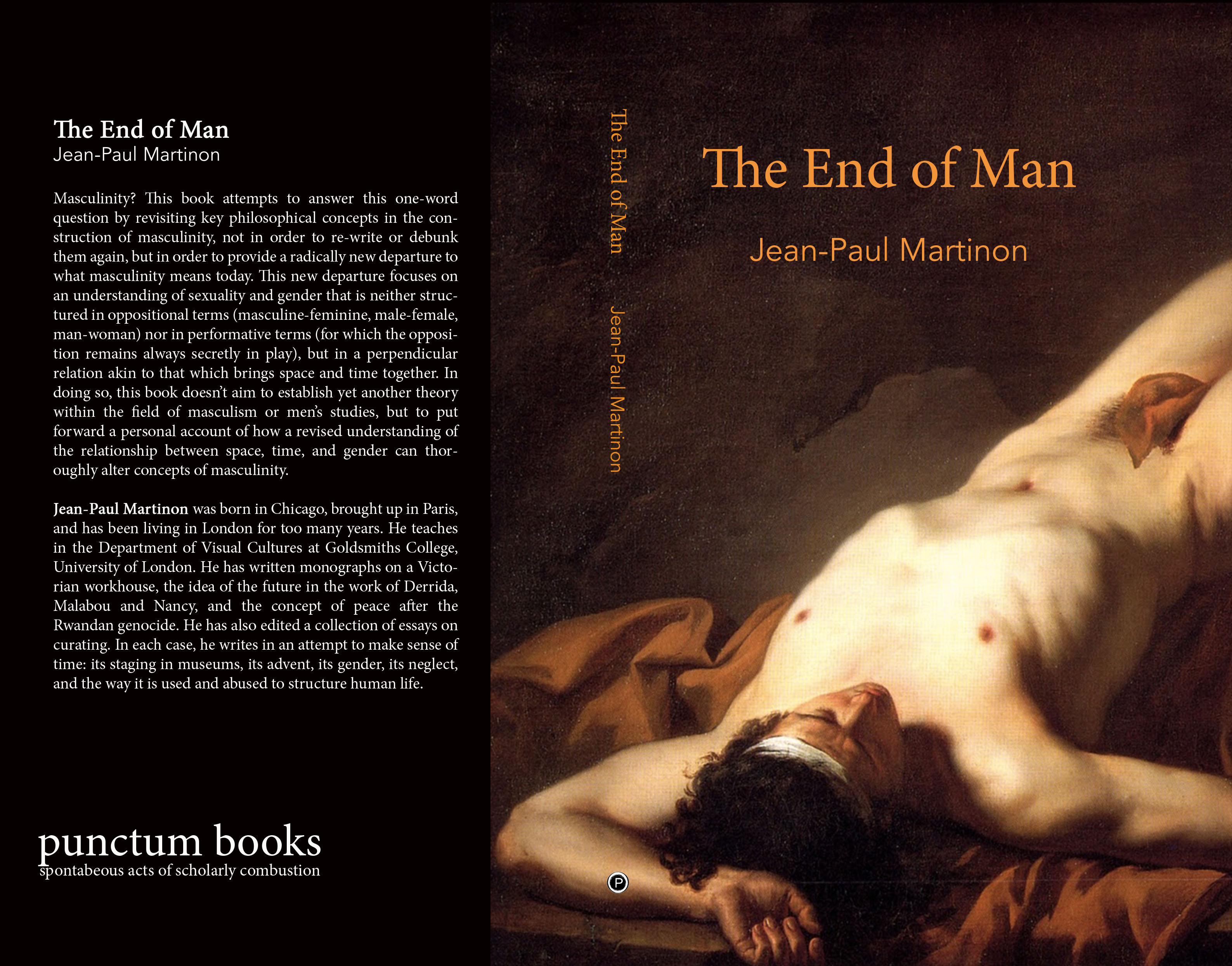
PRESENTATION SCHEDULE
ATTENDANCE POLICY
Attendance, promptness, and participation are essential to success in college courses. Faculty members recognize that unexpected occasions may arise when a student must be absent from class, but my general attendance policy is that if you are absent more than the number of required class sessions per week (in this case, that would be more than 2 sessions), I have the option of lowering your final course grade by one letter grade for each additional session missed. Furthermore, if absences become excessive (more than two weeks' worth of sessions), the SIUE Registrar, at my request, reserves the right to withdraw you administratively. For more information on this, please consult the following: SIUE Class Attendance Policy. Failure to attend class in a responsible and committed manner may thus be grounds for failure in or administrative withdrawal from the course.
ACADEMIC DISHONESTY
Any student found engaging in an act of academic dishonesty will be promptly dismissed from the course with a grade of "F." By "academic dishonesty," I mean PLAGIARISM (the act of representing the work of another as one's own), which the University considers a grave breach of intellectual integrity. All definitions, terminology, concepts, and patterns of organization taken from an outside source must be identified and given credit in any essay or exam you write--whether it be for the English department or any other department. For more detailed information on this, please consult the following: SIUE Plagiarism Policy.
DISABILITY ACCOMMODATIONS
If you feel that you are entitled to special accommodations (for example, a volunteer note-taker, interpreter, special desk, or extra time on assignments), please contact the Disability Support Services office in Rendleman Hall #1218 (Phillip Pownall, Director), or visit their website, and they will help you fill out the necessary paperwork.
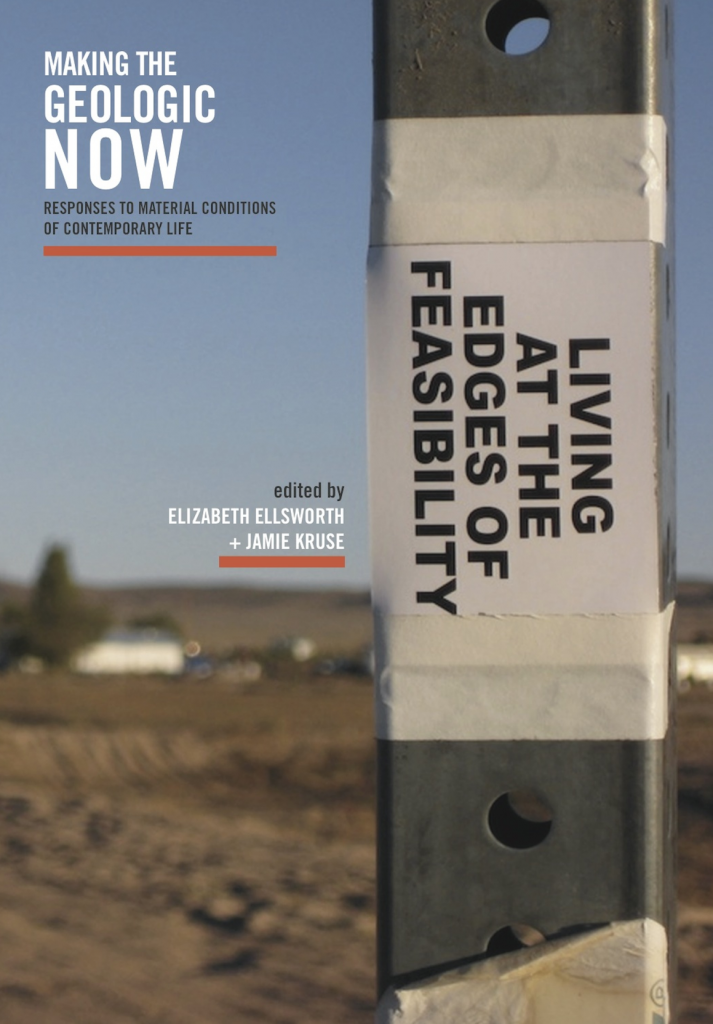
WORKING BIBLIOGRAPHY
[under construction]